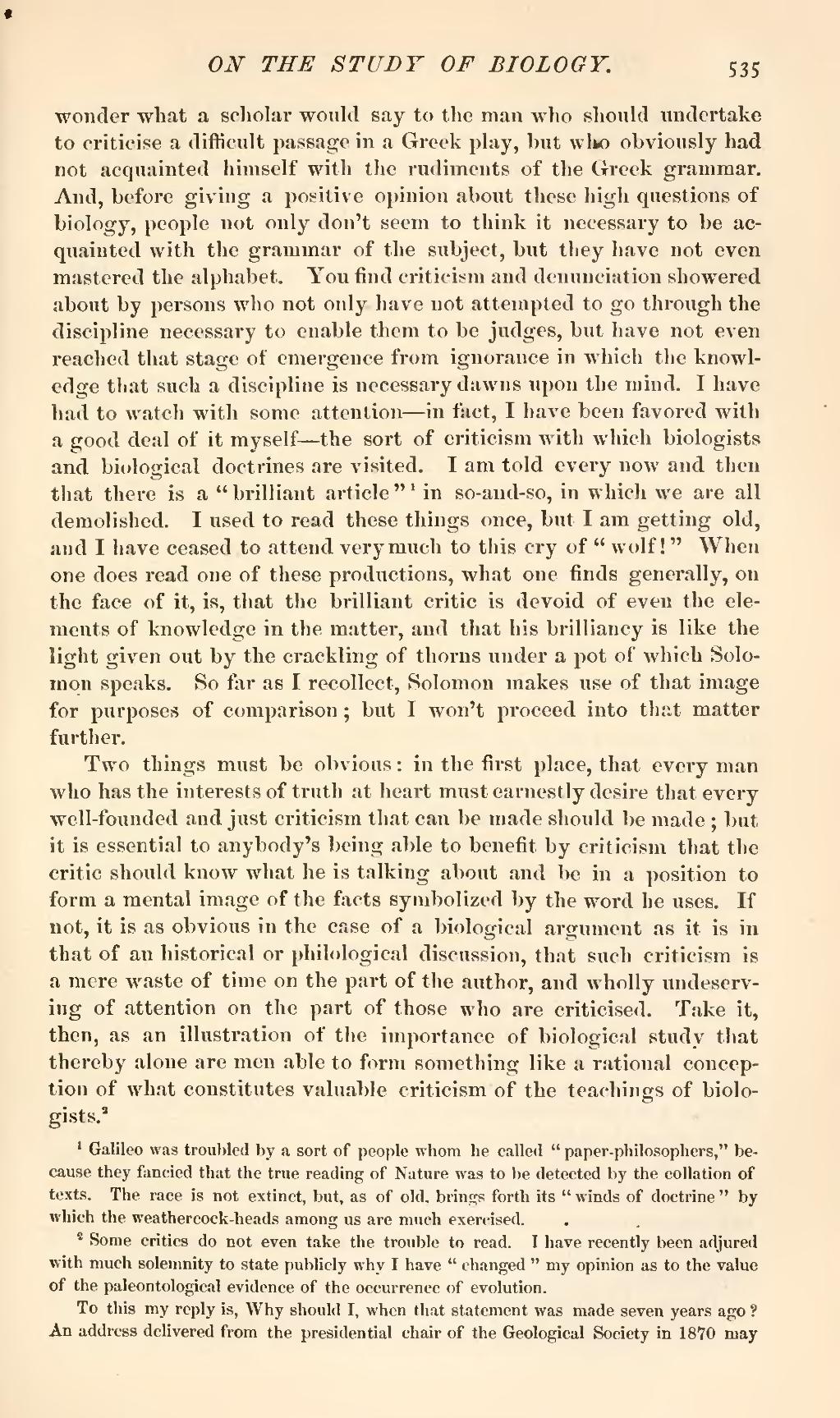wonder what a scholar would say to the man who should undertake to criticise a difficult passage in a Greek play, but who obviously had not acquainted himself with the rudiments of the Greek grammar. And, before giving a positive opinion about these high questions of biology, people not only don't seem to think it necessary to be acquainted with the grammar of the subject, but they have not even mastered the alphabet. You find criticism and denunciation showered about by persons who not only have not attempted to go through the discipline necessary to enable them to be judges, but have not even reached that stage of emergence from ignorance in which the knowledge that such a discipline is necessary dawns upon the mind. I have had to watch with some attention—in fact, I have been favored with a good deal of it myself—the sort of criticism with which biologists and biological doctrines are visited. I am told every now and then that there is a "brilliant article"[1] in so-and-so, in which we are all demolished. I used to read these things once, but I am getting old, and I have ceased to attend very much to this cry of "wolf!" When one does read one of these productions, what one finds generally, on the face of it, is, that the brilliant critic is devoid of even the elements of knowledge in the matter, and that his brilliancy is like the light given out by the crackling of thorns under a pot of which Solomon speaks. So far as I recollect, Solomon makes use of that image for purposes of comparison; but I won't proceed into that matter further.
Two things must be obvious: in the first place, that every man who has the interests of truth at heart must earnestly desire that every well-founded and just criticism that can be made should be made; but it is essential to anybody's being able to benefit by criticism that the critic should know what he is talking about and be in a position to form a mental image of the facts symbolized by the word he uses. If not, it is as obvious in the case of a biological argument as it is in that of an historical or philological discussion, that such criticism is a mere waste of time on the part of the author, and wholly undeserving of attention on the part of those who are criticised. Take it, then, as an illustration of the importance of biological study that thereby alone are men able to form something like a rational conception of what constitutes valuable criticism of the teachings of biologists.[2]
- ↑ Galileo was troubled by a sort of people whom he called "paper-philosophers," because they fancied that the true reading of Nature was to be detected by the collation of texts. The race is not extinct, but, as of old, brings forth its "winds of doctrine" by which the weathercock-heads among us are much exercised.
- ↑ Some critics do not even take the trouble to read. I have recently been adjured with much solemnity to state publicly why I have "changed" my opinion as to the value of the paleontological evidence of the occurrence of evolution.
To this my reply is, Why should I, when that statement was made seven years ago? An address delivered from the presidential chair of the Geological Society in 1870 may
